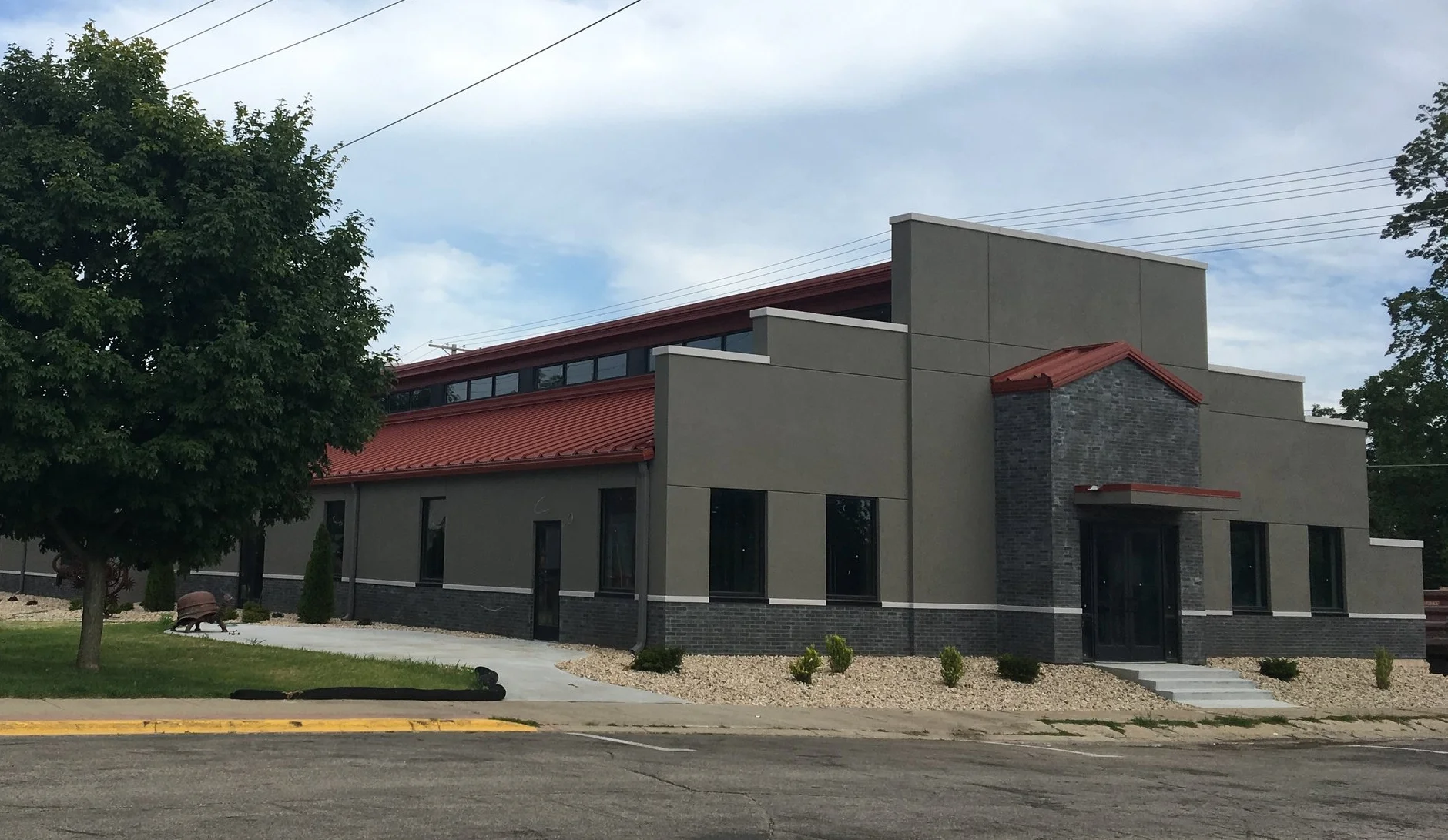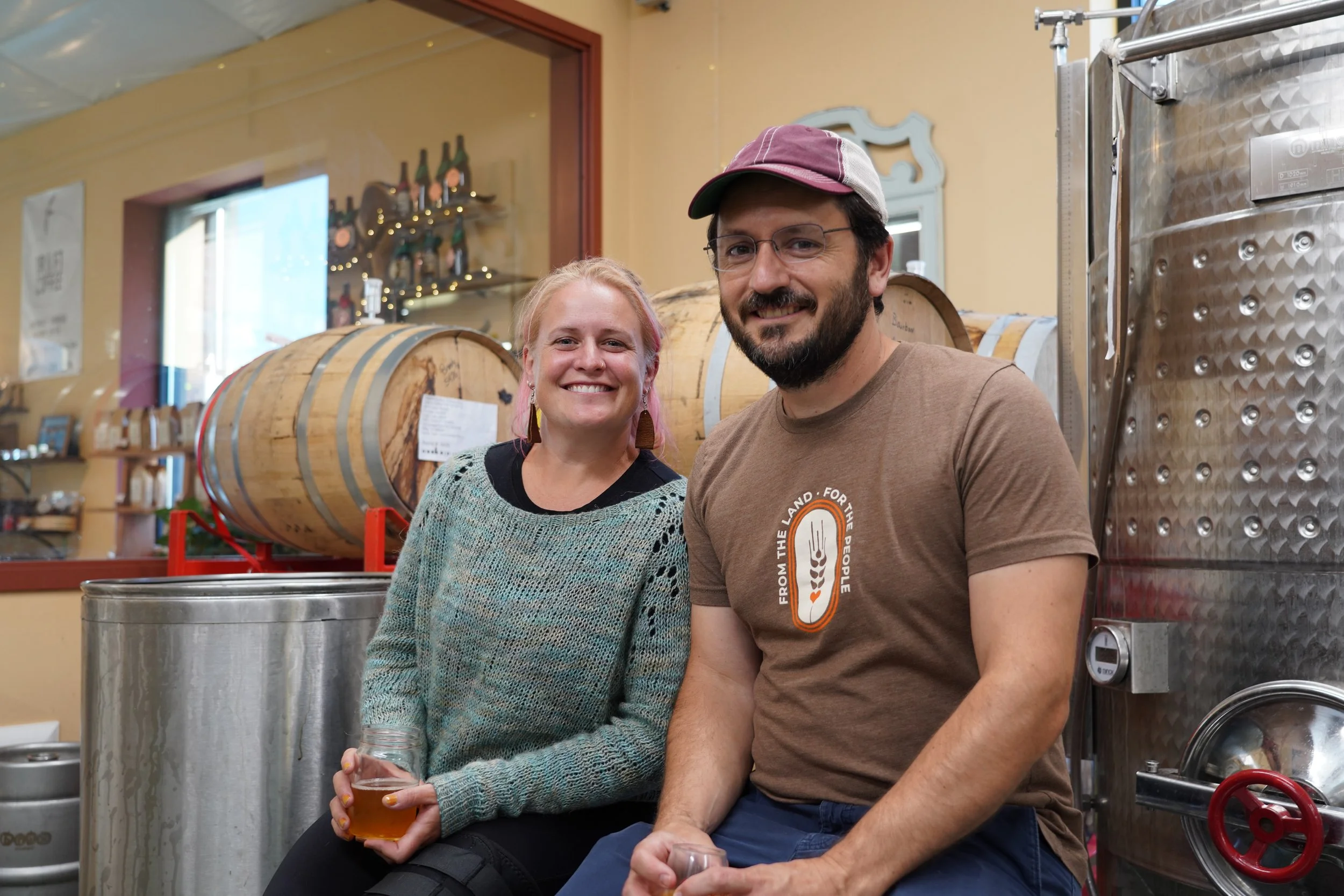The Real Estate Odyssey of Brix Cider
The Real Estate Odyssey of Brix Cider
We hope this story will have a happy ending. We think it will. Up to now it has been a long voyage. We’ve seen storms, high seas, and many changes of fortune. We’ve been shipwrecked and stranded. We’ve even faced a few monsters. Fortunately, we’ve also benefited from the kindness and wisdom of others who have helped us navigate the treacherous waters of business real estate.
It started innocently enough, back in 2016 when we first formed our cider company. We found a building for sale in nearby Blue Mounds that seemed promising for a production space and tasting room. We pulled together a business plan and made our first commercial batches of cider to get our feet wet and to give ourselves some legitimacy as a company. We visited the building a few times with a couple different consultants, but when we called again to schedule a visit with a contractor who would do some remodeling, we learned that the building had an accepted offer. It eventually sold. Oh well.
Above: The building in Blue Mounds that we thought was promising... until it sold to someone else.
While exploring the Blue Mounds building, we happened to get to know a potential investor who was interested in our business. In early 2017, he found a different building that he encouraged us to explore. We liked it. The idea was that he would buy the building and lease it to us. We revised our business plan, revised all our financial projections, put together floor plans, met with contractors, talked to potential business partners, and visited the place numerous times thinking it was going to happen. The Achilles heel of the deal proved to be Wisconsin alcohol laws (which are really silly by the way). The potential investor didn’t want to go through with the purchase if we couldn’t serve hard alcohol and mixed drinks. As a prospective “winery,” we could only serve what wineries are allowed to serve in Wisconsin, and every effort we made to try to configure a workable arrangement ended up falling short. Oh well again (though giving up on this building was a little harder to swallow than the Blue Mounds building).
Next came the Mount Horeb Food Emporium. This was a project led by a local non-profit, and they intended to build out a large commercial space in Mt Horeb for multiple tenants involved in processing local foods. They initially promised a nice low rent and a lot of perks with shared equipment. We liked the business prospects of Mt Horeb, and it seemed like a good fit. At first they told us that construction would be done and that we could move in by fall of 2017. We did another business plan, another round of financials, more floor plans, and multiple meetings with contractors. Their timeline fell back a bit and their rental rates became less attractive, but we still pushed forward. Construction did move along for a while. I (Matt) quit my day job so that we could gear up for opening. We pressed 4500 gallons of juice that fall and put most of it in frozen storage for use upon moving in. We filled enough kegs with finished product to get us through our first months of being open. We promised jobs to a couple prospective employees. We signed a lease with the non-profit, and we secured a bank loan (no small undertaking) to launch our business. We had multiple permits lined up, and we were ready to go. Then construction stopped. The financing had fallen through. And there we were, stranded, sitting on piles of inventory, paying bills for frozen storage, repaying a loan for a business that wasn’t up and running, and having one less family member earning an income. We couldn’t just say “oh well” with this one. We were livid.
Above: The Brix Cider space in the Food Emporium while under construction in fall 2017.
Spring of 2018 was supposed to be our grand opening, but instead it was a time of feeling lost at sea on a sinking ship. We searched desperately for a piece of solid ground – a commercial property that could work. We turned our business plan inside out and upside down, trying to retrofit it to every space we visited. We looked at doing production in one building and a tasting room in another. We looked at food trucks. We looked at warehouses, restaurants, old empty buildings, and build-to-suit options. With at least 3 of the buildings, we went so far as to develop floor plans and talk to contractors about renovation needs and budgets. We met with banks and lenders about options for getting additional loan money for remodeling costs. With met with village governments to discuss zoning and licensing issues. Each building proved to have a fatal flaw. With every option that failed, our sinking ship took on more water.
We then started exploring the idea of buying Riley Tavern. The property wasn’t listed, but when we approached the owner, he said he was willing to sell. It had a large outbuilding for making cider, a strong customer base to build on, and excellent outdoor entertainment potential. We rewrote the business plan again. This time we were even going to change the name to Riley Cider, to build on the existing name recognition. We put together a massive loan package with the support of a seasoned consultant who thought that banks would want to finance the real estate purchase. We made an offer to purchase the tavern, and after some back and forth, they accepted. We then pitched our plan to six different banks. Most of the banks were very receptive and positive at first. We were nearly certain that at least one of them would come through with the loan we needed. But then, one by one, the banks started saying “no.” For some, the problem was that we would have been fully leveraged, without access to rainy day financing, and they didn’t like that level of risk. For others, the problem was that they couldn’t refinance our original government-backed loan with another government-backed loan, and that was the only way they were willing to do it. Our ship was sinking again. This time we had paid legal fees for all the real estate paperwork, sunk in countless hours putting together loan materials and meeting with banks, and put up earnest money that we’re still struggling to get back.
Above: When planning to buy Riley Tavern we went so far as to plan on and prepare for a change of name. We wanted to remain recognizable with our apple logo while using the Riley name to build on the popularity of the tavern.
Right as banks were starting to pull out, we received a phone call out of the blue from Steve Schlecht, the owner of Duluth Trading Company. As a business man and real estate investor in Mt Horeb, Steve knew us through our failed lease at the Food Emporium and through another one of his properties that we had considered. He called us because he had taken over the building where the Food Emporium was slated to be, and he wanted to rent part of it to us. We met with him a few times over the last few weeks, and we moved forward quickly. We now have a new lease signed, and we believe that this one is solid. In the end, we seem to be getting an excellent space, in a great location, at a fair price. It’s been a long, hard voyage, but hopefully we have a new home.
Above: The future home of Brix Cider. Interior construction should recommence soon, and we'll spruce it up a bit before we move in.
Over the last few years, we have given many answers to the questions “when will you be open, and where will you be located?” Let’s hope that we’re not too far off this time when saying that we plan to be open by early 2019 at 119 S 2nd Street in Mt Horeb.














